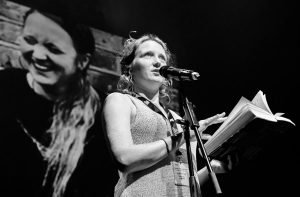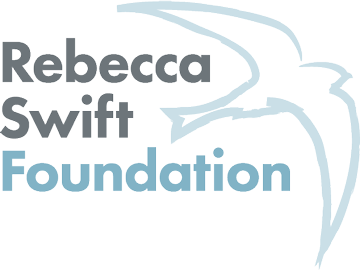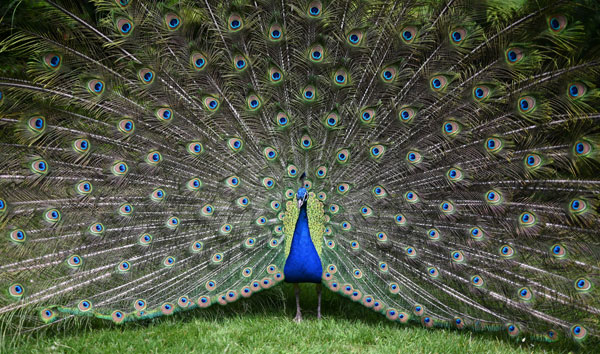
When a young poet in one of our focus groups said she didn’t know how to promote her own work without feel embarrassed and ashamed, we knew we had to find someone to offer encouragement – and who better than Hollie McNish, who has had so much criticism levelled at her, and who remains a beacon of positive messaging…
I was hoping to write an article here with lots of powerful messages of self-worth, which would allow you to burst free from that nagging and consistent worry that so many of us have had and still harbour about promoting our own writing to others. A take-up-space sort of message. A believe-you-are-worth-your-words sort of feeling.
But there’s a poet called Vanessa Kisuule who has already written that for us. The poem is called Take Up Space. It’s not about getting over the fear of promoting your writing to others, it’s about the fear of promoting anything about yourself to others really, and I think it’s great: https://www.youtube.com/watch?v=B72_O9D4jNg.
So instead, I’ll give you a few of the most embarrassing examples of my own ridiculous attempts to avoid promoting myself or my work.
I think it’s vital not to underestimate how daunting, uncomfortable and how embarrassing promotion can be. I’ve published five poetry books now and have been reading at live poetry gigs for over ten years. I am only just about over the worry that positively promoting my work online or live does not turn me into some sort of self-obsessed arrogant attention-seeking monster.
So here are a few of my past bloopers of non-promotion and what I’ve hopefully learnt from them.
- I paid to get into my own gig.
I was headlining an event in London early on in my poetry career. £50 fee plus travel (Note: always remember to add travel expenses to any fee). I walked up to the doorway and a woman behind the table, cash box in front of her, said: £5 please. Despite having performed for a few years by then, I went bright red in the face, stumbled over my own tongue and rather than coming out with the dreaded words ‘I’m one of the poets’, I handed over the fiver. I would have got away with this had the organiser not seen me and shouted across the room ‘what are you doing, Hollie’ and then made me take the money back. Even admitting to being a writer or a poet or a performer comes with awkwardness. - I lied about not having any books whilst carrying a bag of my own books
Oh lord, the dreaded ‘I have a book / CD / pamphlet to sell’ speech. For years, I thought that telling people I had things to sell after a poetry reading made it look like I didn’t love poetry. A fake. Only in it for the money. So for a long time, I wouldn’t tell people about any merchandise I had. I would take it with me and then take it home.
I stopped this after being caught out by my friend (a support network is essential – look out for fellow writers too embarrassed to sell their work and help them!). I had just read at a gig in Manchester. I had ten books in my bag (I never used to take more than I thought would sell, again, for fear of embarassment). An audience member approached me after the gig and said: I really liked your poems. Do you have a book? I panicked, because a) I’d have to admit I wanted to sell something, and b) I’d have to declare a price I expected to be paid for this book I’d loved writing. I smiled and said ‘no, sorry.’
My friend chimed in; ‘yes, you do Hollie’, pointing to the bag full to the brim with my unsold, secret books. I can still picture this woman’s face whenever I am worried about selling. She was simply baffled as to why I hadn’t told her. Oh, she said, you do have a book. Are you selling them? Oh lord, next hurdle. Oh, I spluttered, no, just take one.
We then had an argument – a nice, friendly one – about how she didn’t expect it for free, she just wanted to buy a book.
Again, she just wanted to buy a book. Just like, if I see a singer I like, I might want to buy a CD. Or like last week I saw a guy cleaning windows really well and got his number see if he could clean my windows for me. Not for free. Just a normal transaction when someone has a skill or product you would like to partake in. - I criticised my own poems so much in an interview that I was then quoted by journalists as an official source to back up their own dislike of my work.
I won the Ted Hughes Award for Nobody Told Me. In an interview, I was asked why I thought I had won. I cringed. What is anyone supposed to respond to that? Instead of giving any positive reason, or even saying I was pleased, I replied, more or less, that it wasn’t anything to do with any of the writing being any good but just the theme that people related to. I described my poems in the book as ‘too long’ and ‘scrappily written’ and ‘not very good’.
Shortly afterwards, a very bad review of my work justified itself by quoting me slagging off my own work. Even Hollie knows the poems are no good. After this, another article quoted that article, to describe how lots of people found the poems ‘too long’ and ‘scrappy’. I’m not saying that none of the poems couldn’t use another edit, but there’s a fine line between learning from criticism and improving your writing and putting yourself down.
My main fear in terms of self-promotion was what other people would think of me for doing it. It’s ridiculous. If you enjoy writing, write. If you want to improve, read more. If you want to share your work, on whatever platform you choose, share it. Promote it. Wanting to promote your work does not make you an arrogant arsehole. Whether that means sending poems into literary magazines or attending an open mic to read something you’ve written or starting your own Instagram page. It’s ok to share. It’s a human joy to share.
Nobody in an audience thinks you sound awful saying ‘I have books to sell’. Nobody picking up a poetry magazine thinks ‘what a conceited git sending their poems into this magazine’ and nobody online thinks ‘who does she think she is, telling us where her gigs are and how we can buy tickets’. So just do it. And please, don’t pay to get into your own reading.
Hollie McNish has published four collections of poetry: Papers (2012), Cherry Pie (2015), Why I Ride (2015), Plum (2017) and one poetic memoir on politics and parenthood, Nobody Told Me (2016) for which she won the Ted Hughes Award for New Work in Poetry.
Her cross-genre collection of poetry, memoir and short stories – Slug, and other things I’ve been told to hate, was published in May 2021 with Hachette. Her re-telling of classical Greek play Antigone is also published by Hachette and will be performed by Storyhouse in October 2021. A further collection, Lobster, is due for release in 2022.
As well as her own publications, McNish has written and performed poems for various campaigns and organisations, including The Economist Education Foundation, Durex‘s campaign for orgasm equality, and The Eve Appeal. She is a patron of Baby Milk Action, a network of over 270 citizens’ groups in more than 160 countries whose aim is ‘to stop misleading marketing by the baby feeding industry… protect breastfeeding and babies fed on formula to prevent unnecessary death and suffering’
McNish’s work has divided critics, with P. N. Review going so far as to refuse to review her 2018 Picador publication Plum, because ‘to do so for a poetry journal would imply that it deserves to be taken seriously as poetry’. Following an online response from McNish, this article received coverage in several national news outlets such as The Guardian and the BBC. In the same year, Emma Watson named McNish, alongside other poets Rupi Kaur and Sabrina Mahfouz, as having reignited her love for poetry.

